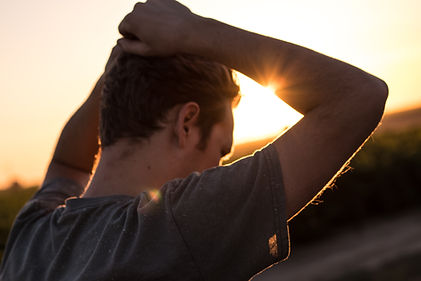
Discovering Hope
Counseling and Psychological Services

“We did not come into this world loathing ourselves or wishing to numb our feelings. As small children, we operated from a place of wonder, curiosity, spontaneity and creativity.”
~ Christopher Dines
Developmental and Relational Trauma Therapy (DARTT)
Developmental and Relational Trauma therapy is based on the models and teachings of Healing Our Core Issues (HOCI) Institute created by Jan Bergstrom, M. Ed, LMHC, SEP, and Dr. Rick Butts, LPCC-S, SEP. They combined the models of several proven therapeutic approaches to create the framework for healing, growth, connection, and a true sense of self.
What Is Developmental Trauma
All of us, no matter our backstory, where our journey has taken us, and where we are headed have experienced stress, betrayal, hurt, and ultimately trauma. As long as imperfect humans build connections and relationships with other imperfect humans, we will experience relational hurt. As adults we recognize this truth and are able to process and heal from basic relational injuries from our interactions with other humans. As children, we are completely vulnerable and unequipped to process, understand, and integrate relational hurts and woundings, and this can create problems in relationships in adulthood.

Developmental trauma is defined as experiences of emotional, physical, sexual, spiritual, intellectual or neglect abuse a person has lived through in their life from birth through age 22
~HOCI

Can Adults Experience Relational Trauma?
Adults who grew up in healthy and functional homes can still experience relational trauma. Relational trauma is a relational/attachment wound that goes beyond the unintentional misunderstanding, or act of thoughtlessness; it is a relational/attachment wound that brings about betrayal, abandonment, or serious trust wounds. These wounds follow us and go on to impact our ability to access joy, connect with others, and even trust ourselves.
Our Approach?
Let's face it. Everyone has experienced some kind of trauma in their life at some point. Maybe you have never experienced Big T trauma, but we have all had relationship breaks, betrayals, felt unseen, unheard, and unimportant. We have all had someone we love or trusted be the source of hurt. That is the experience of being human. The good news is, these past experiences don't have to define us. Just because we have gone through hard things, sometimes devastating, unspeakable things, does not mean that we are forever doomed to feel broken, damaged, unlovable, or unvalued.
Together, we can unpack these experiences, integrate them as part of ourselves, but not defining us. We can learn to love ourselves, tap into our sense of joy and spontaneity, and reconnect with others in a moderated and healthy way. We can develop a knowing and acceptance for our true and whole self.

You can’t go back and change the beginning, but you can start where you are and change the ending.
~ CS LEWIS
If you have questions about this model and how it could be helpful to you, or you are ready to take the plunge and begin addressing your developmental and relational wounds, learning to be your most functional adult self and build healthy attachments to others, reach out today.